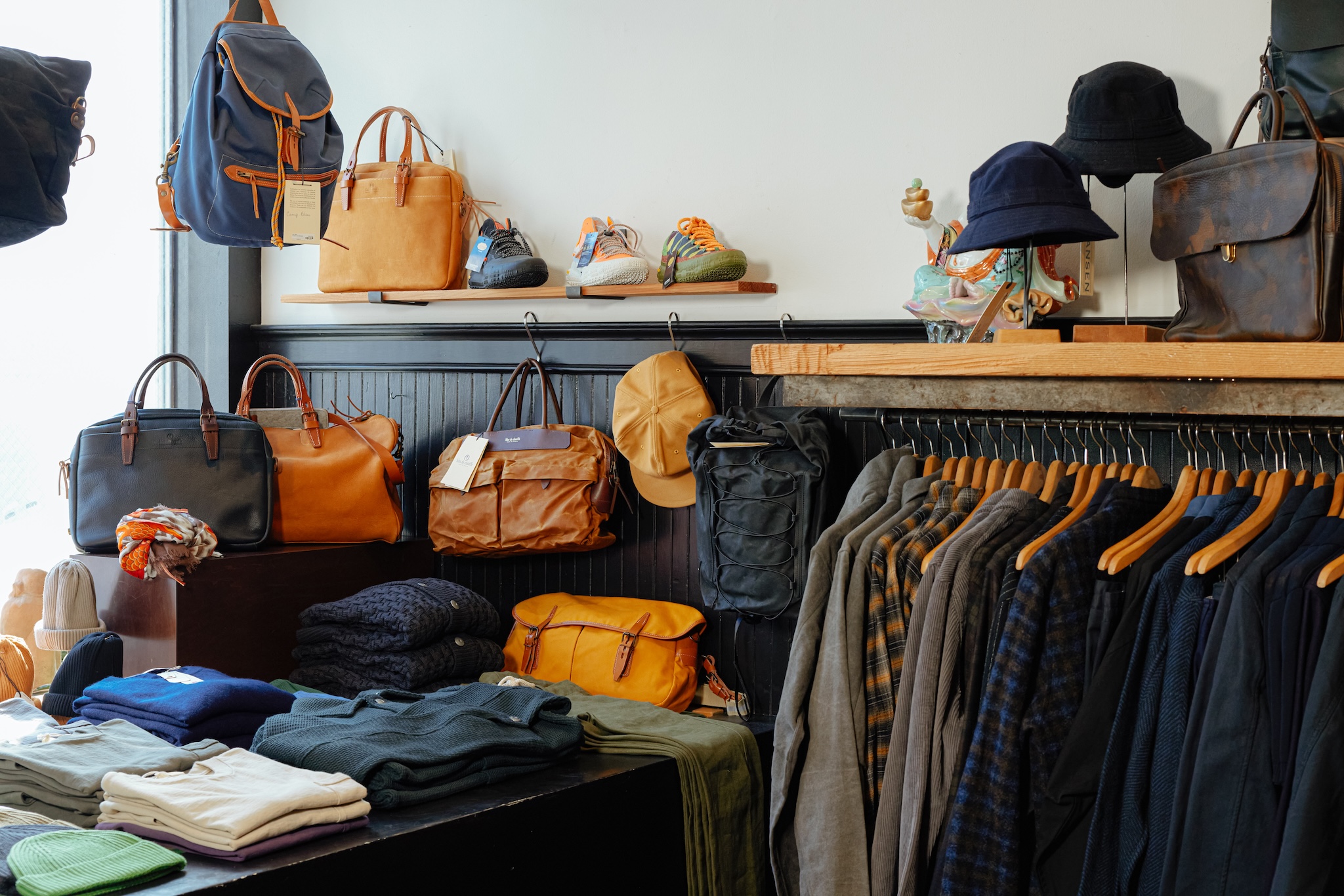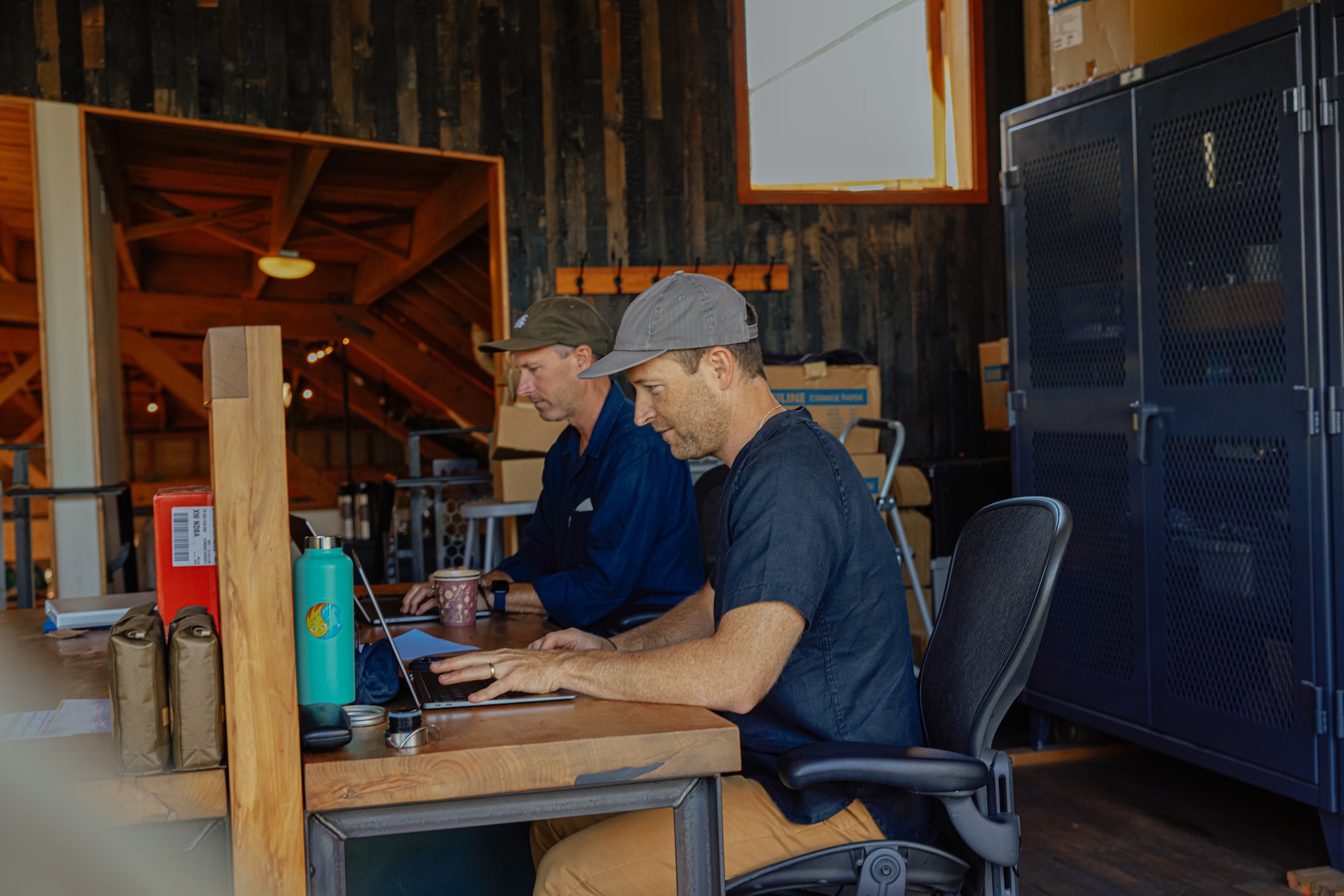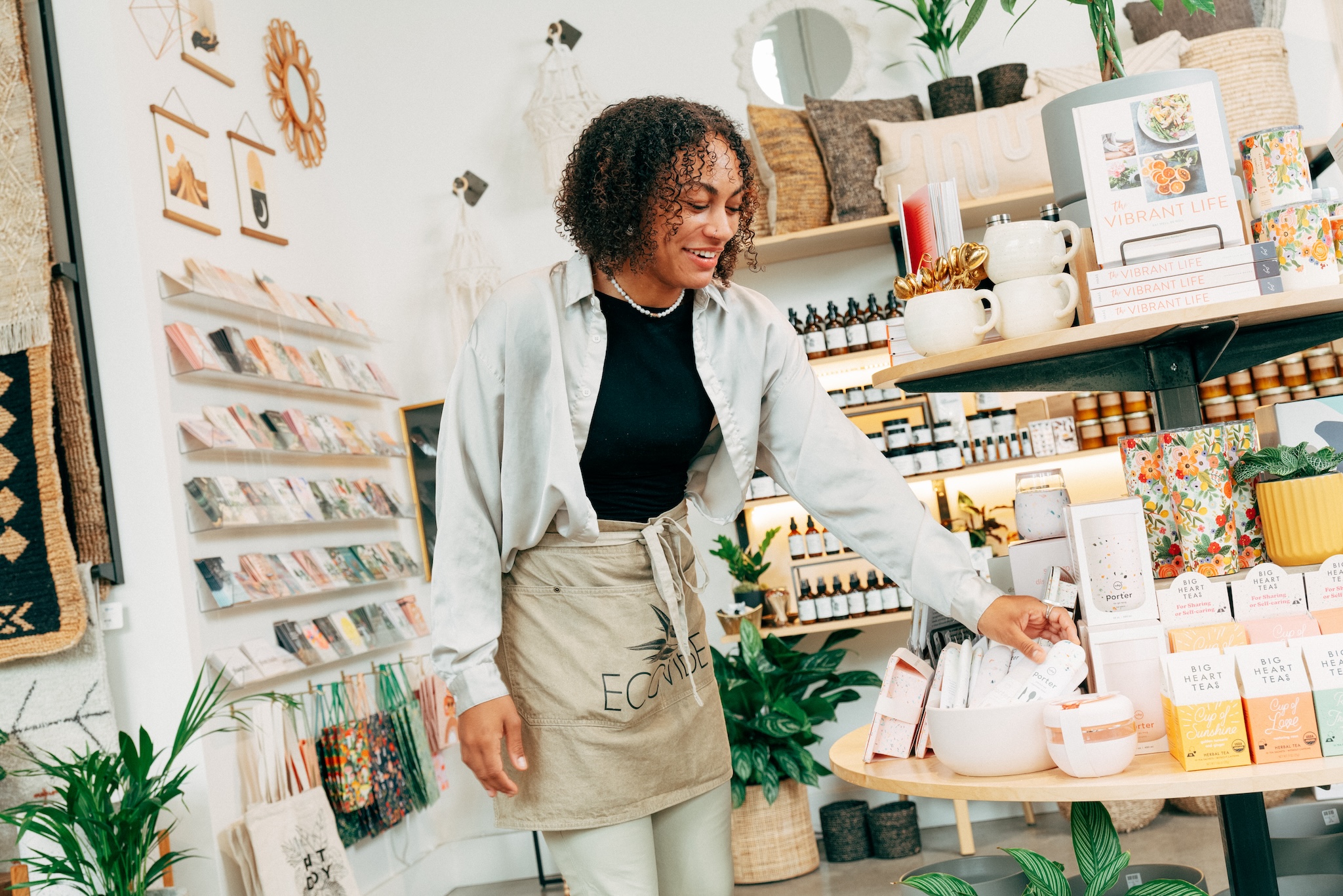

Everyone has participated in retail shopping, whether that’s buying groceries at your corner store or picking out a luxury candle as a gift. To put it simply, retail is the selling of goods to individuals. It can happen in person, online, through the mail—anywhere.
For business owners looking to open their own retail store (whether online or a brick-and-mortar space), this guide can help demystify all the moving parts of this trillion-dollar industry. According to the Bureau of Labor Statistics, there are more than 1 million retail establishments in the United States, and that number continues to grow.
Retail is an important engine behind the economy, and it plays the crucial role of linking goods with consumers.
What is retail?
In the supply chain, retail is the connection between manufacturers and shoppers. Retailers purchase goods, typically in bulk from a wholesaler, and then sell those items in smaller quantities to shoppers at a higher unit price. For example, a clothing retailer might buy scarves in bulk from a wholesaler for $17 per unit and then sell them in their brick-and-mortar store for $25 per unit.
Why are retailers important?
If not for retailers, consumers would need to spend time and energy going to individual brands or manufacturers for everything they wanted to purchase. Imagine if instead of going to a grocery store, you had to visit a dairy farm, a grain silo, and a sugar mill! By bringing items from various sellers into one location, retailers create a convenient and curated experience for shoppers.
The biggest difference between retail and other forms of commerce is that the buyer is the end user. It’s where the supply chain journey stops, and the product is finally consumed by an individual.
What are different types of retail stores?
Retail is a large umbrella that includes all kinds of sales channels. The most familiar type is a brick-and-mortar store where shoppers wander in and casually browse before making a purchase. But retail has grown to include much more than just in-person interactions. Here is a non-exhaustive list of the different forms that retail can take.
E-commerce
E-commerce is the buying and selling of goods online. It’s been one of the biggest disruptions to retail of the past two decades and currently makes up more than 15% of retail sales, according to Forrester. Think Amazon, Etsy, and Wayfair.
Direct-to-consumer
Direct-to-consumer, or DTC, is another retail model where brands sell directly to consumers without going through third parties. DTC businesses bypass certain steps in the supply chain, such as selling through a major retail store, by handling their own advertising and distribution. Think Allbirds, Glossier, or Warby Parker.
Department stores
Department stores are large retail stores divided into many sections, or departments, where each department specializes in a different area like apparel or kitchenware. Variety and quality are the biggest benefits of these stores because they can be a one-stop shop for different consumer needs. Think Nordstrom or Macy’s.
Big-box stores
As the name suggests, big-box stores are massive physical storefronts that sell a high volume of products at a discounted price. Unlike department stores, which are often attached to malls, big-box stores are typically stand-alone structures. Think Walmart or Costco.
Independent businesses
Independently owned small businesses, also known as mom-and-pop stores, can specialize in anything from books to shoes. They are privately owned and not controlled by a larger company or corporation. They’re often entrenched in the local community and appeal to consumers who want a personal feel and to support small businesses.
What should you do before starting a retail business?
Starting a retail store requires planning and research—and some real introspection. As a retailer, you’ll have the opportunity to work for yourself and forge your own path, but there’s a lot to consider and accomplish before you plan your grand opening. Here are a few things to think about before you start your journey and open your store.
Explore ways to fund your business
There are some retailers who bootstrap, or self-fund, their business. This isn’t possible for many new retailers, so they turn to business loans from organizations like a bank or the Small Business Association. Or they look to investors to support their business. You can learn more about funding your business in this article.
There are a lot of initial costs to consider, which is why Faire offers the Open with Faire program for eligible new retailers. Eligible retailers can buy up to $20K worth of inventory and pay up to 60 days later with no interest, so they can start selling right away.
Anticipate costs and outline a budget
To launch a business and keep things running smoothly, you’ll need a good budget plan. Estimate what your recurring costs might be from month to month. The cost of your inventory will be a big one, but you should also include the cost of a storefront and paying workers if you have a brick-and-mortar, plus the cost of any software you might need for point-of-sale transactions.
Use these estimates to create a budget and be sure to account for significant one-time costs you might have to get your business off the ground. This should all be part of your business plan.
Decide whether you’ll sell online or in person
Will your retail brand exist solely online? Will it be brick-and-mortar? Or will you have both a physical store and a website to sell products? Consider which might be best for your business.
Selling online typically involves lower overhead costs since you don’t have to lease a storefront or hire cashiers. If customer interactions and being a member of a local community are important to you, you might prefer the face-to-face nature of in-person selling.
Define your brand values
Aspiring retailers should take the time to articulate their brand values, the principles that guide their decisions. In a crowded marketplace, distinct and authentic brand values can also help you connect with your target audience. For some retailers, ethical sourcing of products is imperative. For others, it might be uplifting women or selling items made in the USA. Using filters on Faire allows you to find wholesalers who share your values and fill your store with products you can stand behind.
Research potential wholesale partners
The wholesalers you choose to work with will play a major role in your businesses, so make sure they’re the right ones. You can use Faire to find wholesalers across countless categories from home goods to skincare. Try searching for items you’d like to stock; whether it’s wedding dresses or baggy jeans, you’ll come across tons of inspiration and great brands to partner with. Trade shows are also a good way to meet many wholesalers at once and make valuable connections.
Don’t forget the paperwork
In order to make your business official, you’ll need to complete certain paperwork. If possible, you may want to consult with a business attorney to guide you through some of the red tape.
Once you’ve defined your business and come up with a name, you’ll need to register it with your state’s Secretary of State website and the IRS. Then you’ll need to obtain licenses, certificates, permits, and business insurance. Resources like the Small Business Association are a good place to find out what permits your business may need based on your state.
Final thoughts
Our economy, our communities, our day-to-day lives wouldn’t be possible without the work of retailers. When you become a retailer, you take on a special responsibility and opportunity to bring connection and convenience into your shoppers’ lives. By educating yourself and taking advantage of available resources, you’ll be that much closer to your dream of launching a meaningful brand.




